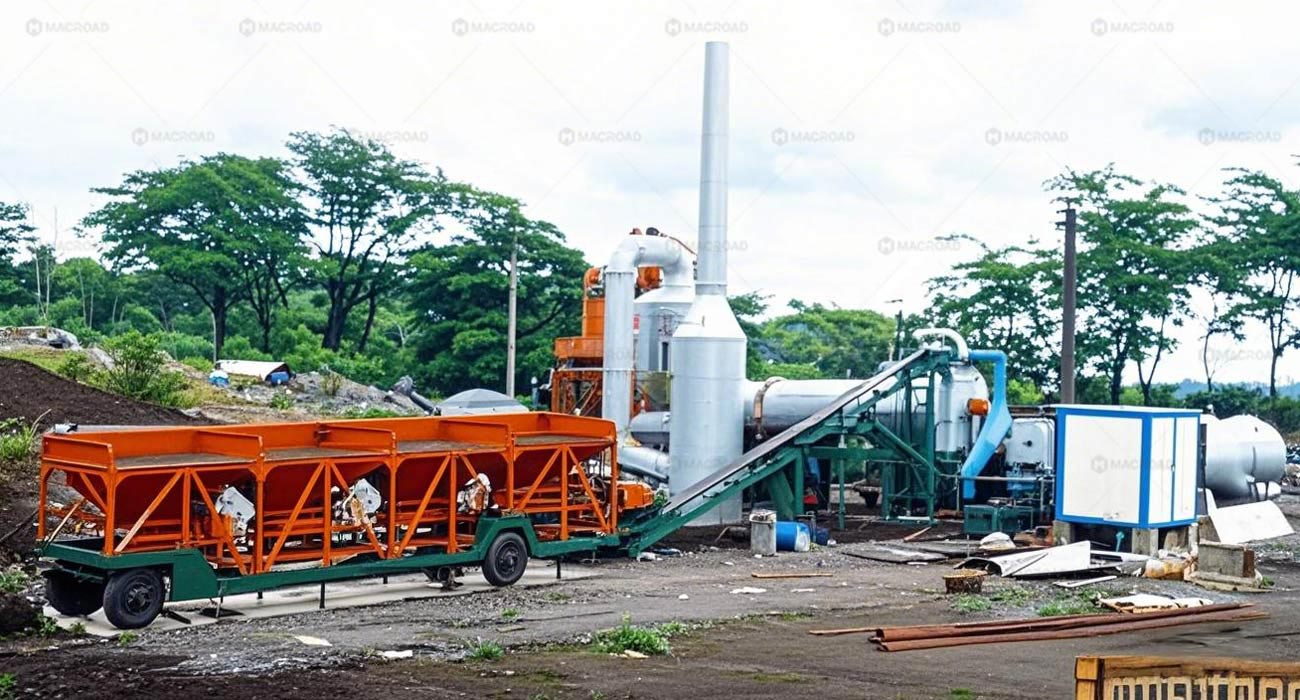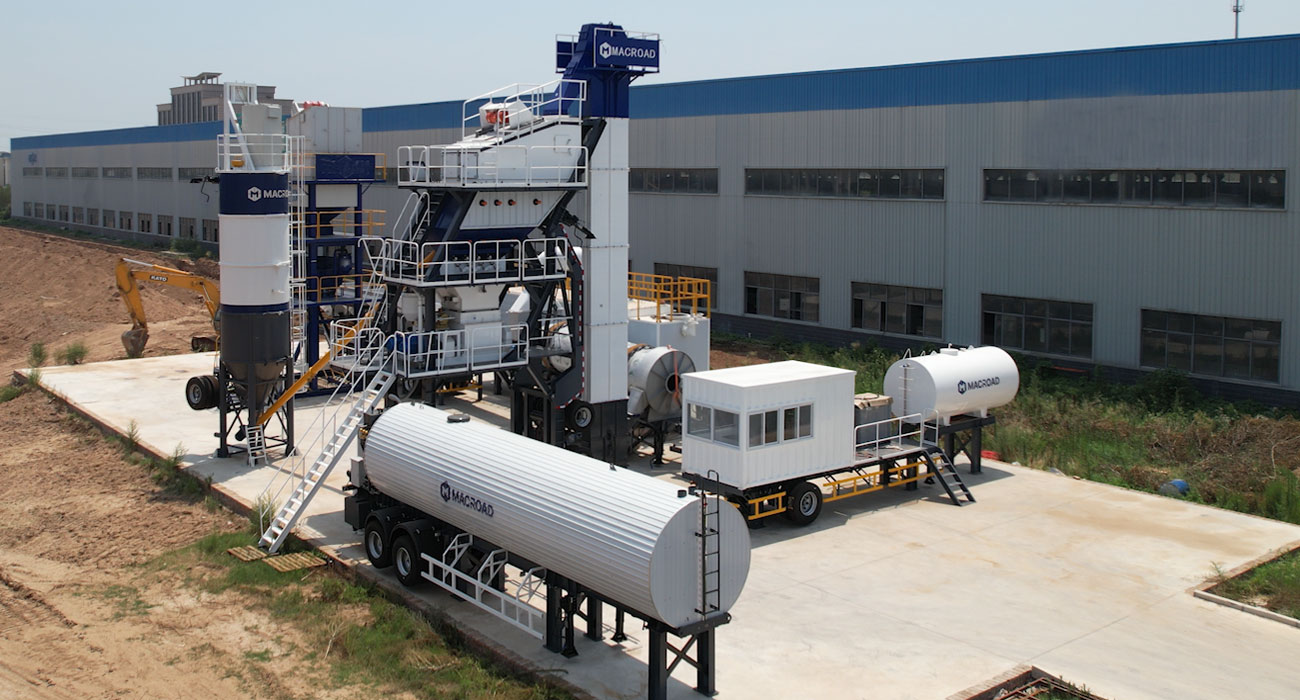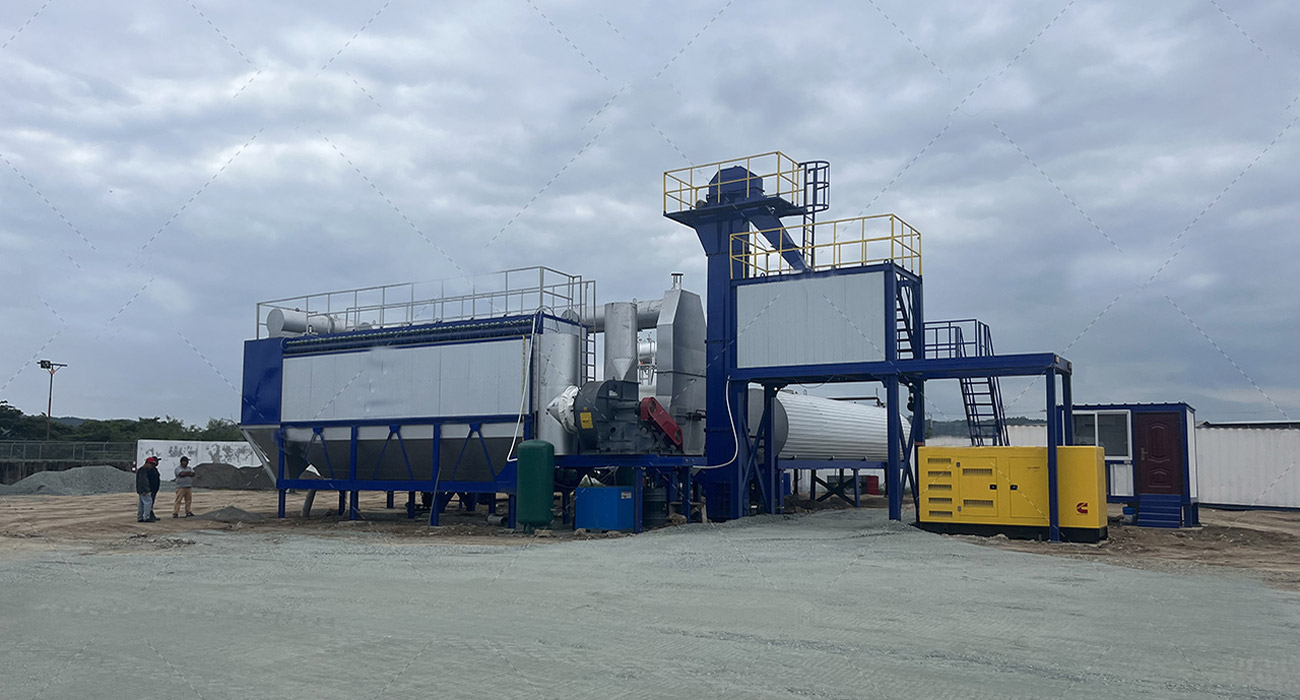9
0
0
Balancing Modular Design and Structural Stability in Mobile Asphalt Plants
In the competitive landscape of asphalt production, mobile asphalt plant manufacturers face the challenge of designing equipment that is both convenient for modular disassembly and structurally stable during operation. This balance is crucial for ensuring efficient relocation and reliable performance under dynamic conditions. This article explores how these manufacturers achieve this delicate equilibrium while enhancing the longevity of core components.

Modular Convenience Meets Structural Integrity
One of the primary focuses for mobile asphalt plant manufacturers is the ease of modular disassembly. Quick dismantling capabilities are essential for relocating the plant to different job sites without significant downtime. To facilitate this, manufacturers often implement standardized quick-connect interfaces that allow for fast assembly and disassembly of modules. These interfaces simplify the setup process, enabling operators to minimize idle time while maximizing productivity.
However, the convenience of modular design must not compromise the structural stability of the connected modules. To address this, manufacturers reinforce the rigidity of connection points, ensuring that the modules remain securely attached during operation. This reinforcement is critical for minimizing vibration, which can lead to premature wear and tear on essential components. By optimizing the design of connection parts, manufacturers can maintain structural integrity while still enabling quick relocation.

Advanced Design Techniques for Enhanced Stability
To further enhance the structural stability of mobile asphalt plants, manufacturers often employ advanced design techniques such as finite element analysis (FEA). This method allows engineers to simulate various forces acting on the modules during operation, enabling them to optimize the force distribution across different components. By identifying potential weak points in the design, engineers can make informed adjustments that enhance the overall robustness of the equipment.
The impact of these design concepts on the service life of core components, such as mixing cylinders and drying drums, is significant. By ensuring that the modules can withstand vibrations and stresses during production, manufacturers reduce the likelihood of component failure. This proactive approach not only extends the lifespan of critical parts but also enhances the overall reliability of the mobile asphalt plant, leading to lower maintenance costs and improved operational efficiency.

Rigorous Testing for Reliability Assurance
To verify the reliability of their designs, mobile asphalt plant manufacturers conduct a series of rigorous tests. One common test involves simulating transportation conditions by subjecting the equipment to vibration tests that mimic the bumps and jolts experienced during relocation. These tests help identify any potential issues that could arise during transportation, allowing manufacturers to make necessary adjustments before the equipment reaches the end user.
Additionally, manufacturers may perform operational stress tests to evaluate how the plant performs under real-world conditions. These tests help ensure that the plant can handle the demands of continuous operation while maintaining structural integrity. The results from these tests provide valuable data that informs future design iterations, helping manufacturers continuously improve their products.
Conclusion
The design process for mobile asphalt plants requires a careful balance between modular convenience and structural stability. By implementing standardized quick-connect interfaces and reinforcing connection points, mobile asphalt plant manufacturers can facilitate easy relocation without sacrificing performance. Advanced techniques like finite element analysis further enhance the design's robustness, positively impacting the service life of core components. Rigorous testing ensures that these designs meet reliability standards, helping operators achieve optimal performance in various construction scenarios. Ultimately, this thoughtful approach to design not only improves efficiency but also contributes to the long-term success of asphalt production operations.

Modular Convenience Meets Structural Integrity
One of the primary focuses for mobile asphalt plant manufacturers is the ease of modular disassembly. Quick dismantling capabilities are essential for relocating the plant to different job sites without significant downtime. To facilitate this, manufacturers often implement standardized quick-connect interfaces that allow for fast assembly and disassembly of modules. These interfaces simplify the setup process, enabling operators to minimize idle time while maximizing productivity.
However, the convenience of modular design must not compromise the structural stability of the connected modules. To address this, manufacturers reinforce the rigidity of connection points, ensuring that the modules remain securely attached during operation. This reinforcement is critical for minimizing vibration, which can lead to premature wear and tear on essential components. By optimizing the design of connection parts, manufacturers can maintain structural integrity while still enabling quick relocation.

Advanced Design Techniques for Enhanced Stability
To further enhance the structural stability of mobile asphalt plants, manufacturers often employ advanced design techniques such as finite element analysis (FEA). This method allows engineers to simulate various forces acting on the modules during operation, enabling them to optimize the force distribution across different components. By identifying potential weak points in the design, engineers can make informed adjustments that enhance the overall robustness of the equipment.
The impact of these design concepts on the service life of core components, such as mixing cylinders and drying drums, is significant. By ensuring that the modules can withstand vibrations and stresses during production, manufacturers reduce the likelihood of component failure. This proactive approach not only extends the lifespan of critical parts but also enhances the overall reliability of the mobile asphalt plant, leading to lower maintenance costs and improved operational efficiency.

Rigorous Testing for Reliability Assurance
To verify the reliability of their designs, mobile asphalt plant manufacturers conduct a series of rigorous tests. One common test involves simulating transportation conditions by subjecting the equipment to vibration tests that mimic the bumps and jolts experienced during relocation. These tests help identify any potential issues that could arise during transportation, allowing manufacturers to make necessary adjustments before the equipment reaches the end user.
Additionally, manufacturers may perform operational stress tests to evaluate how the plant performs under real-world conditions. These tests help ensure that the plant can handle the demands of continuous operation while maintaining structural integrity. The results from these tests provide valuable data that informs future design iterations, helping manufacturers continuously improve their products.
Conclusion
The design process for mobile asphalt plants requires a careful balance between modular convenience and structural stability. By implementing standardized quick-connect interfaces and reinforcing connection points, mobile asphalt plant manufacturers can facilitate easy relocation without sacrificing performance. Advanced techniques like finite element analysis further enhance the design's robustness, positively impacting the service life of core components. Rigorous testing ensures that these designs meet reliability standards, helping operators achieve optimal performance in various construction scenarios. Ultimately, this thoughtful approach to design not only improves efficiency but also contributes to the long-term success of asphalt production operations.
Signatur